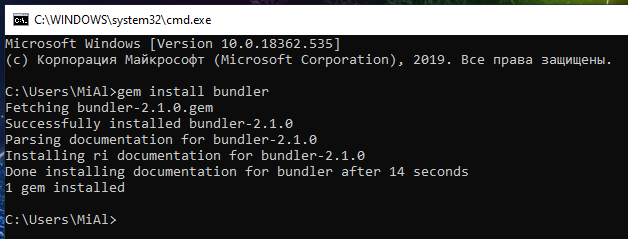There are multiple options you can.
Ruby bundle install path.
If a gem isn t cached or installed bundler will try to install it from the sources you have declared in your gemfile.
Rubymine processes this configuration file to detect that gems are installed into vendor bundle.
Most repositories ended up explicitly updating rubygems in ci to make bundler 2 0 0 work as mentioned in the original blog post.
While installing gems bundler will check vendor cache and then your system s gems.
Bundler provides a consistent environment for ruby projects by tracking and installing the exact gems and versions that are needed.
Bundler provides a consistent environment for ruby projects by tracking and installing the exact gems and versions that you need.
Starting work on a project is as simple as bundle install.
Wait until gems are installed.
Bundle config path gem to start a new bundle.
This resulted in a lot of confusion.
Before you start you will need to install ruby on rails on your machine.
Bundler prevents dependencies and ensures that the gems you need are present in development staging and production.
The closest you can do to a workaround today is to have your ruby version switcher set bundle path to path ruby engine abi version.
Starting work on a project is as simple as running the bundle install command.
Install gems to the vendor bundle project directory.
This ensures that other developers on your ruby application run the same third party code on every machine.
All versions of ruby supported by bundler 2 that is ruby 2 3 ship with rubygems 2 5 or newer but the blog post did not make this clear.
Bundler is an exit from dependency hell and ensures that the gems you need are present in development staging and production.
If your system gems are stored in a root owned location such as in mac osx bundle will ask for your root password to install them there.
Once the installation is finished run bundle install this will create gemfile lock in your repository.

